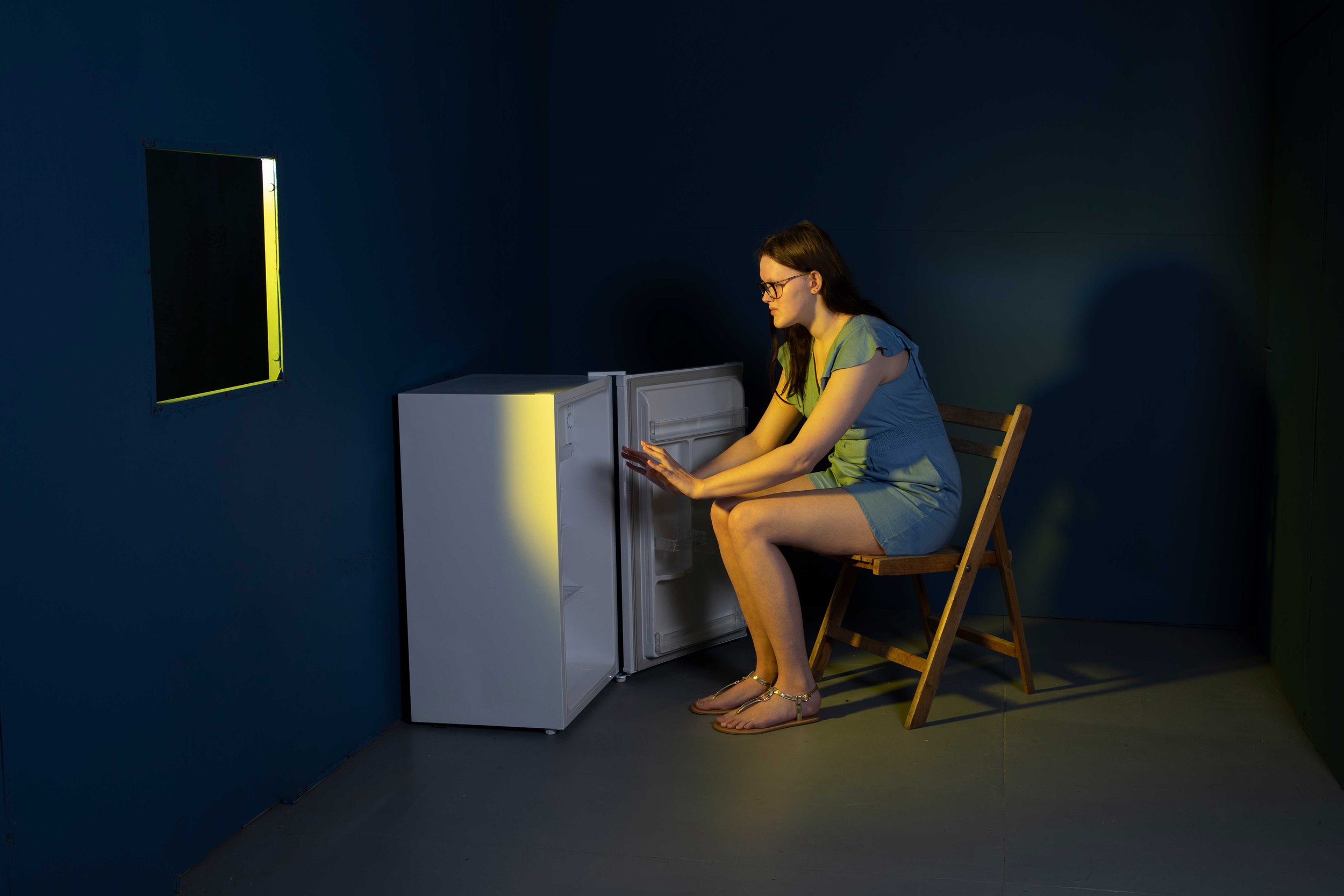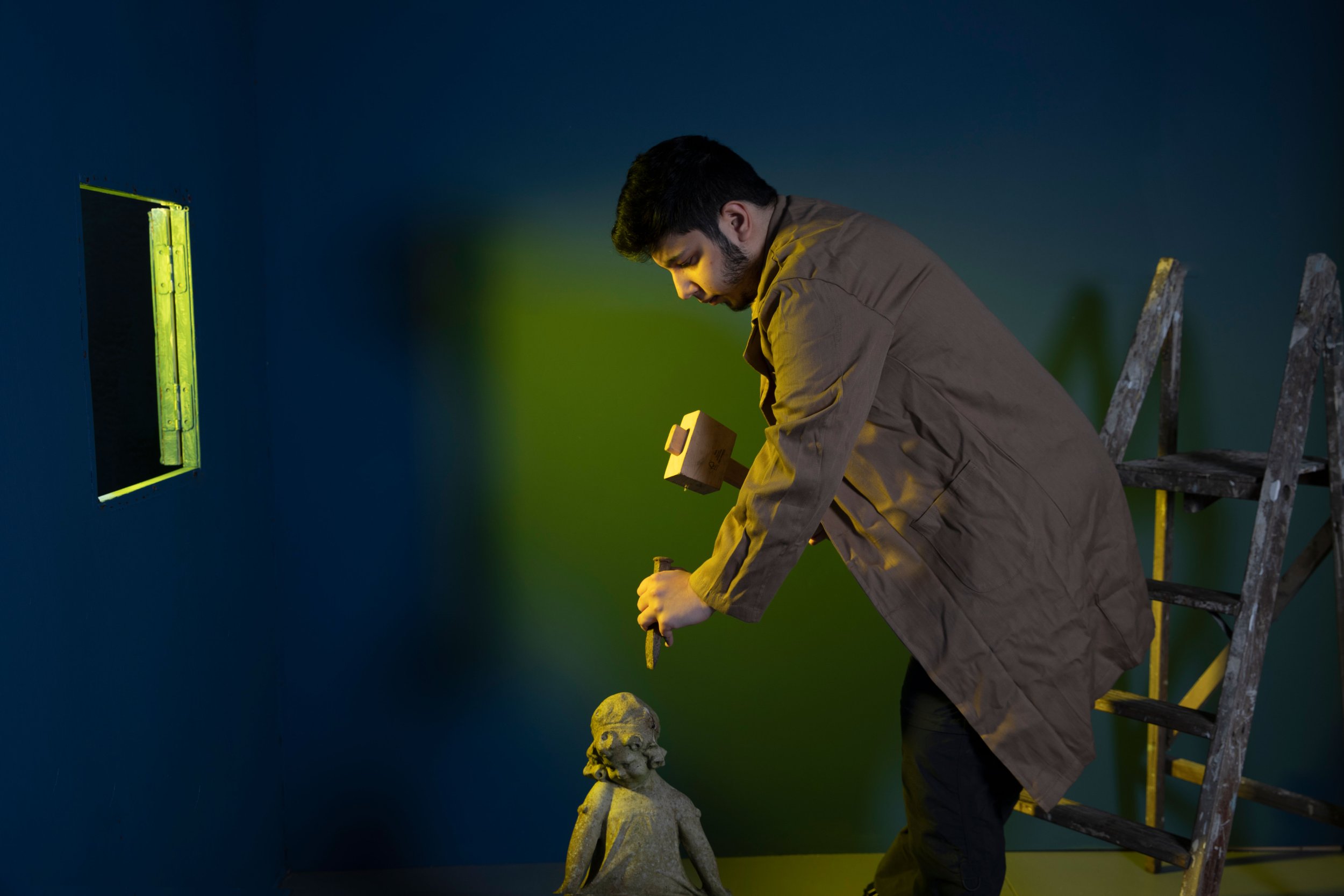Bonnie, now a mum with young children, lives with Haemophilia A Severe. Simply put, “Haemophilia A Severe means that my blood doesn't clot because it's missing factor VIII. Blood needs so many different factors to clot and when one's missing your blood doesn't clot effectively.” It’s an extremely rare condition with only approximately 6000 people in the UK affected. It is rarer still in her case, as she is a female, and typically the condition affects males. Females are generally carriers, or have a milder type of bleeding disorder. To date she has not met another woman or girl with her condition in the UK.
It mainly affected in her joints, she often suffers from pain and swelling.
Haemophilia is unique for everyone. There are different severities and people don't always have the same experience as someone else. Some people bleed more easily, others can go without having any bleeds but then have some kind of trauma and it becomes an issue then. For me, it affects my target joints which are my ankles. I can be limping one day and walking absolutely fine the next because I can treat it. I have to prophylactically take the factor VIII to try and avoid having these bleeding issues, but sometimes, it doesn't always cover everything.
At times Bonnie finds the lack of understanding from others frustrating. Because her condition is invisible, and she looks like a healthy young mum, she often gets stared at or given looks of disgust when she uses her blue badge to park her car. It also affects relationships and friendships, especially new ones;
Because I stay at home when I'm having an active bleeding episode, people might not actually see how bad it can be and how it does affect me. Sometimes it is a struggle to walk around and I don't go out. So, when I say I can’t do something today because I'm having an issue with my haemophilia, people don't really understand or they're kind of shocked and panic asking if I am going to be okay.
The majority of people misunderstand haemophilia and the different types there are, and seem to believe it’s just a case of having an injury or cut and being unable to stop the bleeding. That is just not the case for everyone. More awareness is needed to get past the myths that most people associate with haemophilia.
Photograph by Ceridwen Hughes for Days of Rare exhibition
The opposite is at times also true, and there are those who veer to the other extreme, and are too overprotective of Bonnie, something she has experienced since childhood and continues today. The lack of awareness causes some people to not want her to do things that they deem a risk for her. Although it might be meant well it can feel condescending, and is very limiting at times;
The only person who really knows what you are capable of is you. Over the years I've had so many bleeds and so many issues, I know, sort of almost instantly, what’s going to cause me a problem or I know that I am going to be ok. I would never let myself carry on doing something that is bad for me. Sometimes, I wish I could just go out and climb a mountain or something like that. So many other people can do these things. And they choose not to because it doesn't interest them. But it's different when you physically can't do it.
Haemophilia needs so much more awareness, even in medical settings. Having often found that she has to be an advocate for herself, especially during the pandemic, when she couldn't have someone else with her for support during her appointments. She has had to be absolutely clear with the medical staff, to ensure that she can feel safe in the hands of doctors and medical staff treating her if they’re new to her care. This has meant asking them to liaise with her own haemophilia consultant based in Liverpool for example, before any procedure was carried out;
As a woman, it's really hard because when you have these issues that only women suffer with and you'll go to a doctor about it, they're almost too frightened to do anything because they don't know much about haemophilia, blood diseases or clotting. Most of the time I find they're just too worried to touch you. If you need an operation, even a simple operation that they do every day, there's an added risk that you might bleed heavily. A lot of surgeons don't want to take that risk. I've had situations where I've not been made to feel like they are taking my condition seriously or where I just don't feel safe. As a woman with Haemophilia Severe A, I believe some Doctors don’t really believe I have it, or think that I am a just carrier. I think if there was more awareness, then people would understand more. For example a workplace would understand if you did need to take the day off, or if you needed to work from home that day. I think the general public would have a better understanding that it doesn’t just mean that if you cut yourself, you won't stop bleeding. They'll understand that it is actually inside as well, joints and internal bleeding and pain.
Photograph by Ceridwen Hughes for Days of Rare exhibition
Haemophilia A, also known as classical haemophilia, is a genetic bleeding disorder caused by insufficient blood protein levels called factor VIII, a clotting factor. Individuals with haemophilia A have difficulty stopping the flow of blood from a wound due to the lack of clotting factors. This may be referred to as prolonged bleeding or a prolonged bleeding episode. Haemophilia A, in severely affected individuals, can cause prolonged bleeding from minor wounds, painful swollen bruises, and unexplained (spontaneous) bleeding into vital organs as well as joints and muscles (internal bleeding).
For Bonnie the possibility of working is something that isn’t straightforward, and can be a big undertaking and options for work are limited. Having to think about possible career choices isn’t as simple as following her dreams, instead she has to think practically;
I do have to consider a lot, for example can I do a full-time job? Will I be able to do the job effectively? Will the position allow me to have time off or to take a break if I need it? I need to think about how long I might need to be on my feet or walking. I have to be able to tailor everything to how I am feeling daily, and most jobs are not that flexible. Career-wise, I can only do things that I know are not going to have an impact on my home life. I don't want to be coming home every day needing extra treatment.
Her treatment is administered by placing a butterfly needle into a vein and then injecting the factor VIII twice a week, and as needed. If she forgets a dose the levels in her body drop and she isn’t protected if something happens.
When I've got to have my treatment I always have to psych myself up because if I'm not in the right frame of mind I won't do it, or I won't do it properly. I can then end up missing a vein and being frustrated, and then I'll just leave it which is the wrong thing to do as I will have to do it again.
To do it yourself is tricky. I have developed and learned what works for me over the last few months, for example, there have been times when I've not held the end of the butterfly needle and the blood has been spilling out, but I now know that if I hold it a certain way I'll have more control. I'm proud of myself for doing it, but at the same time, I wish I didn't have to do it.
Photograph by Ceridwen Hughes for Days of Rare exhibition
Along with the physical side of her condition, there is also the psychological impact. Bonnie’s self-image is affected by her haemophilia. She has scarring on both of her arms, and sometimes bruising where her treatment is administered and she is self-conscious of the scars despite most people not even noticing them. Likewise with her ankles, because at times she feels that they are swollen due to past bleeds;
Sometimes as a woman, I want to wear a dress but I've got bruising on my legs or arms. Or, I want to wear strappy shoes but I have to make sure that they're not done up too tight because that will also cause a bleed. People say that they don’t see the scars or they say my ankles don’t look swollen but I know they are and I know I have the scars.
Some days it can all be a lot to deal with, especially with her young family. Bonnie’s children don’t question yet why she needs the treatments as it’s normal for the family and it’s all they have ever known. Having to be careful, and yet still manage to be an active young mum is a hard balance to achieve;
Sometimes we'll stay at home and watch a movie which a lot of families do. But sometimes we have no other choice because I can't go and walk around the zoo, or I can't walk down to the park and I can't lift them into the swing that day... but I don't want the children to feel like they can't play with me because I've got haemophilia. I still want to be just a normal mum.
The impact of her condition on her life is huge, but carefully planning her life around her condition allows her to control as much as possible and helps her navigate and balance her family life. She tries not to schedule too much in the same week, even walking too far.
I want to try and live my life the way I want to live it. For example, if I want to do exercise, I need to think about it before I participate. I can always take extra treatment beforehand, but I won’t take risks and you're not going to see me lifting weights or running marathons. I know that there are people out there with our condition that do it, but for me personally, I just want to be able to do the things that I really love, especially with my kids and not have to say to them no, I can't do that because I ran a marathon yesterday. Especially, when you're a mother, you don't want to say to your kids, no, we can't do that, because of me.
The Haemophilia Society
The organisation supports anyone affected by a bleeding disorder. With over 4,500 members, the society offer free member events, a local group network and online communities to share advice and experiences, as well as the latest news and access to specialist resources








